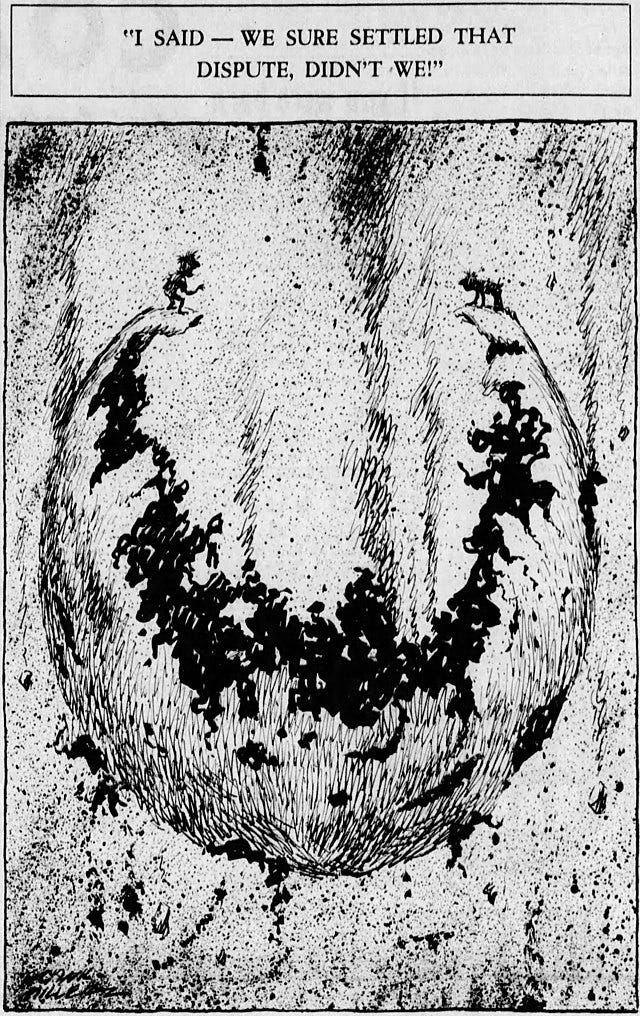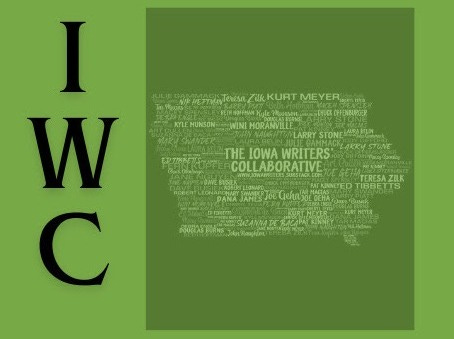Washington Post cartoonist resigns; do wealthy owners really want their newspapers to survive?
Ann Telnaes’s resignation as editorial cartoonist at The Washington Post last week was devastating, both for The Post and for America.
The Post was one of an ever-decreasing number of daily newspapers that continued to employ a cartoonist. She resigned, she wrote in a Substack newsletter, after her editor rejected a cartoon she had conceived “because of the point of view inherent in the cartoon commentary.”
Yes, that’s a deal-breaker. Newspapers may be in the business of making money, but they will be out of business if they attempt to abridge freedom of speech, or the press, to quote the First Amendment. Sadly, they are heading in that direction.
Newspapers figured out early in their history that cartooning was a unique and powerful form of expression.
They also learned quickly that a good cartoonist needed the freedom to draw commentary on the full range of activities surrounding the government and those who run it or would like to run it.
A cartoonist who is prevented from addressing certain subjects within this framework becomes a house organ – a creator of commentary that is designed to serve the interests of the owners, not the public.
A newspaper columnist does not write within such restrictions, and a cartoonist should not be required to draw within such restrictions.
Telnaes’s cartoon was a commentary about a handful of zillionaire corporate executives who have attempted, she said in her newsletter, to “curry favor with incoming President-elect Trump.” The situation has been widely publicized and covered by newspapers and other media.
The cartoon draft showed four such executives with one of them being easily recognizable as Jeff Bezos, founder of Amazon and owner of The Washington Post. The four are shown offering bags of money at the feet of an admittedly unflattering representation of Trump. Also, lying dead or on his belly pleading at Trump’s feet in the foreground was Mickey Mouse, a corporate symbol of the Walt Disney Company. Disney owns the ABC television network, which recently gave Trump $15 million for his inauguration fund in return for the settlement of a somewhat silly lawsuit Trump had filed against ABC.
Telnaes explained that the executives represented in her cartoon have “lucrative government contracts and an interest in eliminating regulations,” and there has been widespread news coverage of their pilgrimages to Mar-a-Lago to try to gain favor from Trump.
It should be noted that it took me about 150 words in the three preceding paragraphs to explain what Telnaes did in her cartoon draft with some strokes of her drawing pencil and nothing more.
That, of course, is the beauty of the cartoon as a form of expression. It makes a statement, but it is also funny. This is the wonder of cartooning, a unique form of expression. Cartoons openly endorse or criticize an idea or a happening without using a word, showing a photo, or playing a video.
One more observation regarding The Post: The power of its voice as a force in protecting the foundational freedoms of our democracy suffered a blow when Bezos vetoed a proposed endorsement of Kamala Harris for President in October. Respected opinion columnist Jennifer Rubin resigned a few days after the departure of Telnaes. Rubin said in a statement that wealthy newspaper owners like Bezos had “abused their audiences’ loyalty and undercut journalism’s vital role in a free democracy.”
For almost 20 years, I worked for a newspaper that published its daily editorial cartoon on Page 1.
Many newspapers once did that. The Des Moines Register, I think, was the last one to do so.
It was, for many readers, perhaps most, the first thing they looked at in their morning newspaper, which had a broad statewide daily circulation in Iowa for decades.
I was the managing editor of The Register from 1985 through 1988. Brian Duffy was our cartoonist.
There were internal debates from time to time about whether the cartoon should be moved to the opinion page. I was a staunch defender of having it on Page 1. Of course, some people loved his work and others did not care for it. Both groups, however, looked at it every day and thought about it.
Wow. Something that made a couple of hundred thousand people think. Every day. What could any front page do that would have been better than that?
The Register published its editorial cartoon on Page 1 for more than a century. It began in 1906 with the newspaper’s first cartoonist, J. N. “Ding” Darling. Ding (a contraction of his surname “D’ing” which became the name by which he was known) won two Pulitzer Prizes for cartooning. He also was an early avid conservationist and the namesake of the Ding Darling National Wildlife Refuge on Sanibel Island in Florida. Frank Miller succeeded Darling in 1953 and also won a Pulitzer Prize. He served until his untimely death in 1983. Duffy followed Miller and served until 2008 when The Register abruptly eliminated his position.
The struggle and decline newspapers have faced in the wake of the internet probably could not have been reversed no matter what newspapers might have done.
But an argument can be made that newspapers did themselves damage with the virtual elimination of staff cartoonist as a part of their editorial firepower.
Cartoonists can and have converted their efforts to the digital environment. But what if newspapers still had staff or contract cartoonists as a prominent part of their websites?
It sure feels like there would be some significant readership and reputational benefits from that.
But it no longer matters. The oligarchists who control some of the nation’s largest remaining newspapers have made their choice. They will sacrifice their newspapers before they risk damaging the business ventures that have made them astronomically wealthy.
NOTE TO READERS: I write this column, Arnold Garson: Second Thoughts, as a member of the Iowa Writers’ Collaborative. You can subscribe for free. However, if you enjoy my work, please consider showing your support by becoming a paid subscriber at the level that feels right for you. Click on the Subscribe button below. The cost can be less than $2 per column.
Iowa Writers Collaborative Roundup
Linking readers and professional writers who care about Iowa.




While I agree 100% with the sentiment expressed here, as a former reporter/editor of four-plus decades, I am struggling to think of ANY cartoonist that would be allowed to lampoon the actual owner of the paper they worked for. In my experience, the ownership level has never really loved “freedom of expression” but reluctantly allowed it when aimed at other public figures. But if you point the finger back at THEM it’s a red line.
The ONLY way we get out of the mess Trump voters have put us in is for more people to do what Telnaes did and refuse to participate in the destruction of what's good about American by people who have no moral compass.